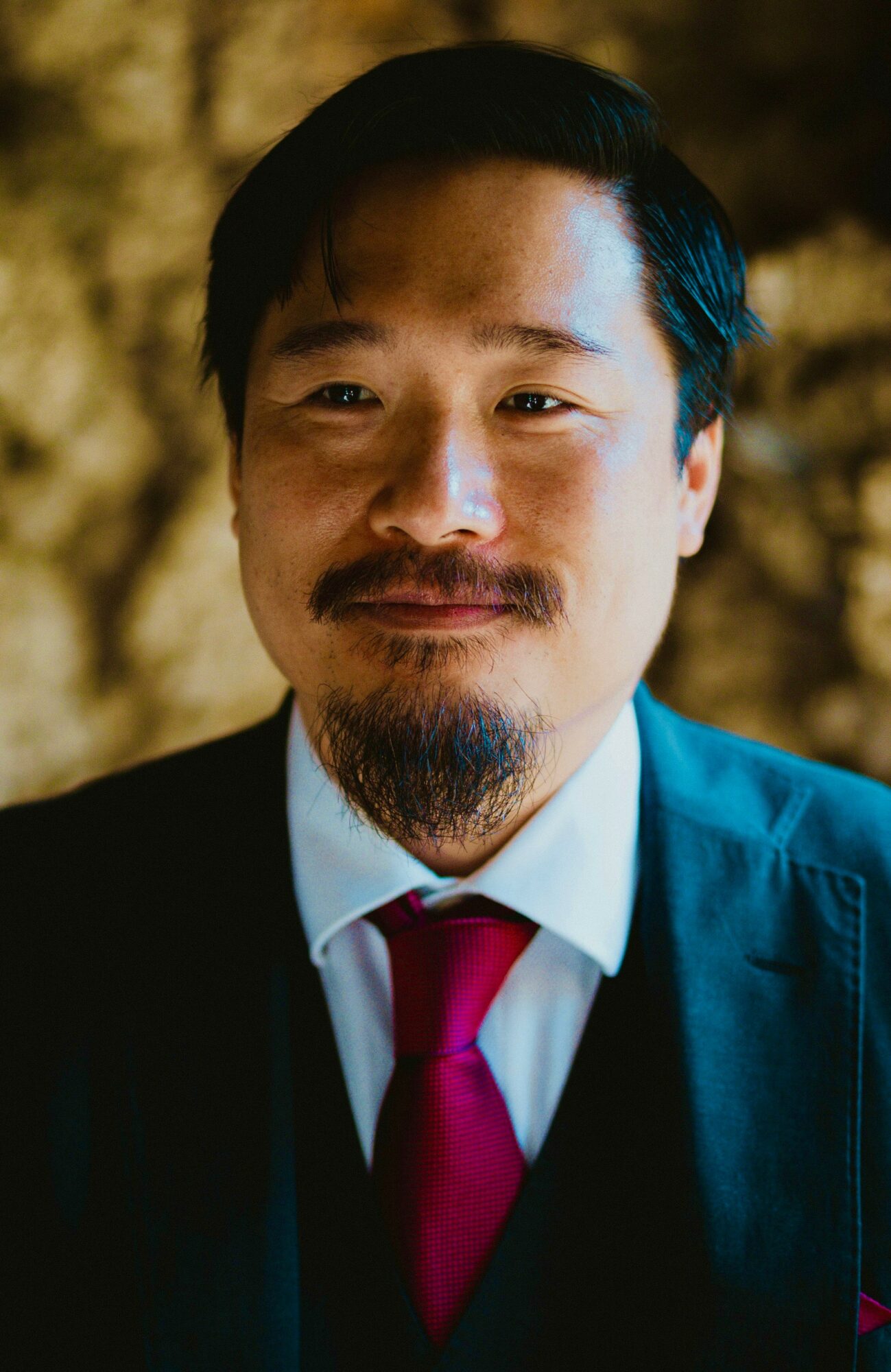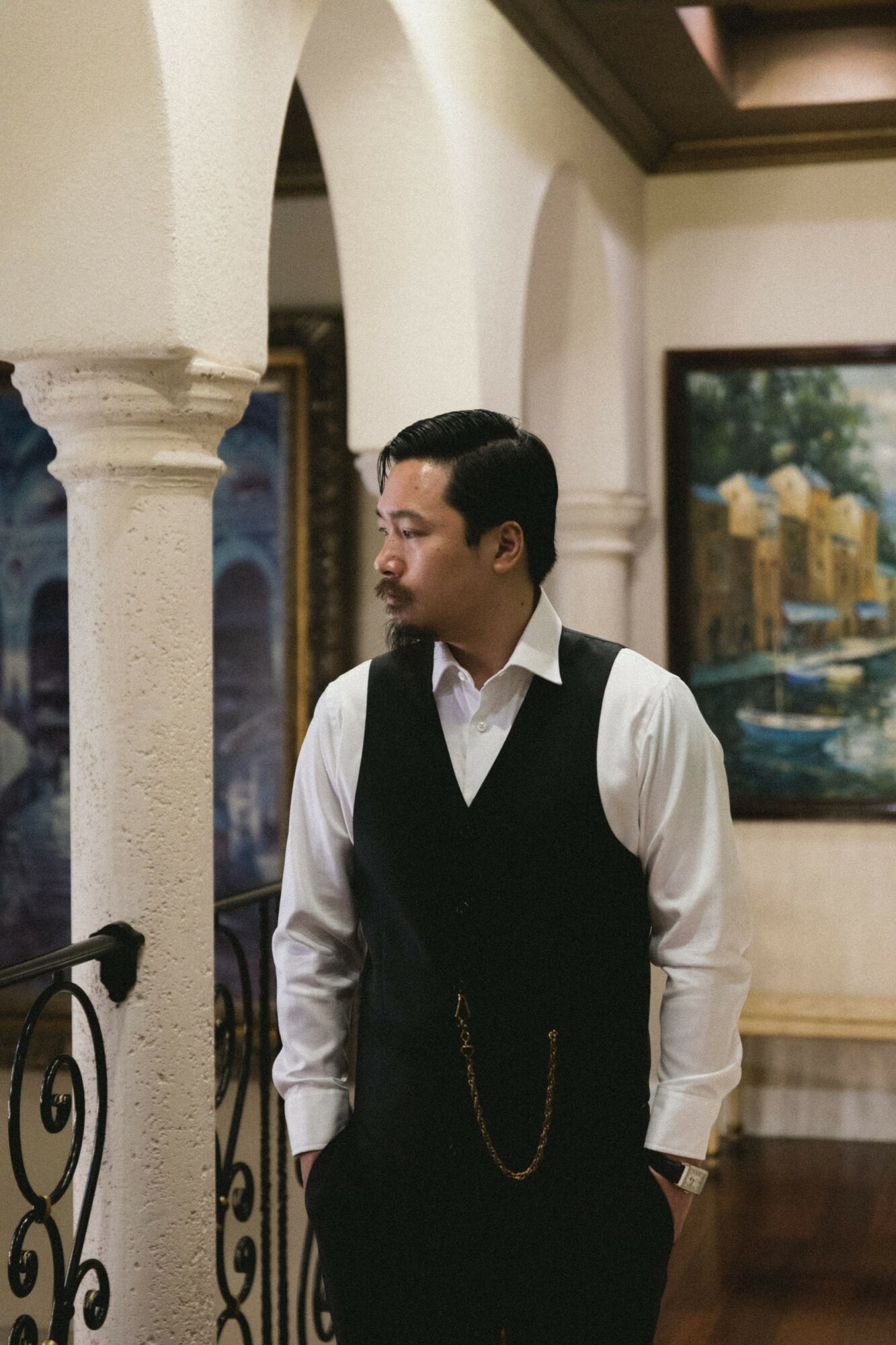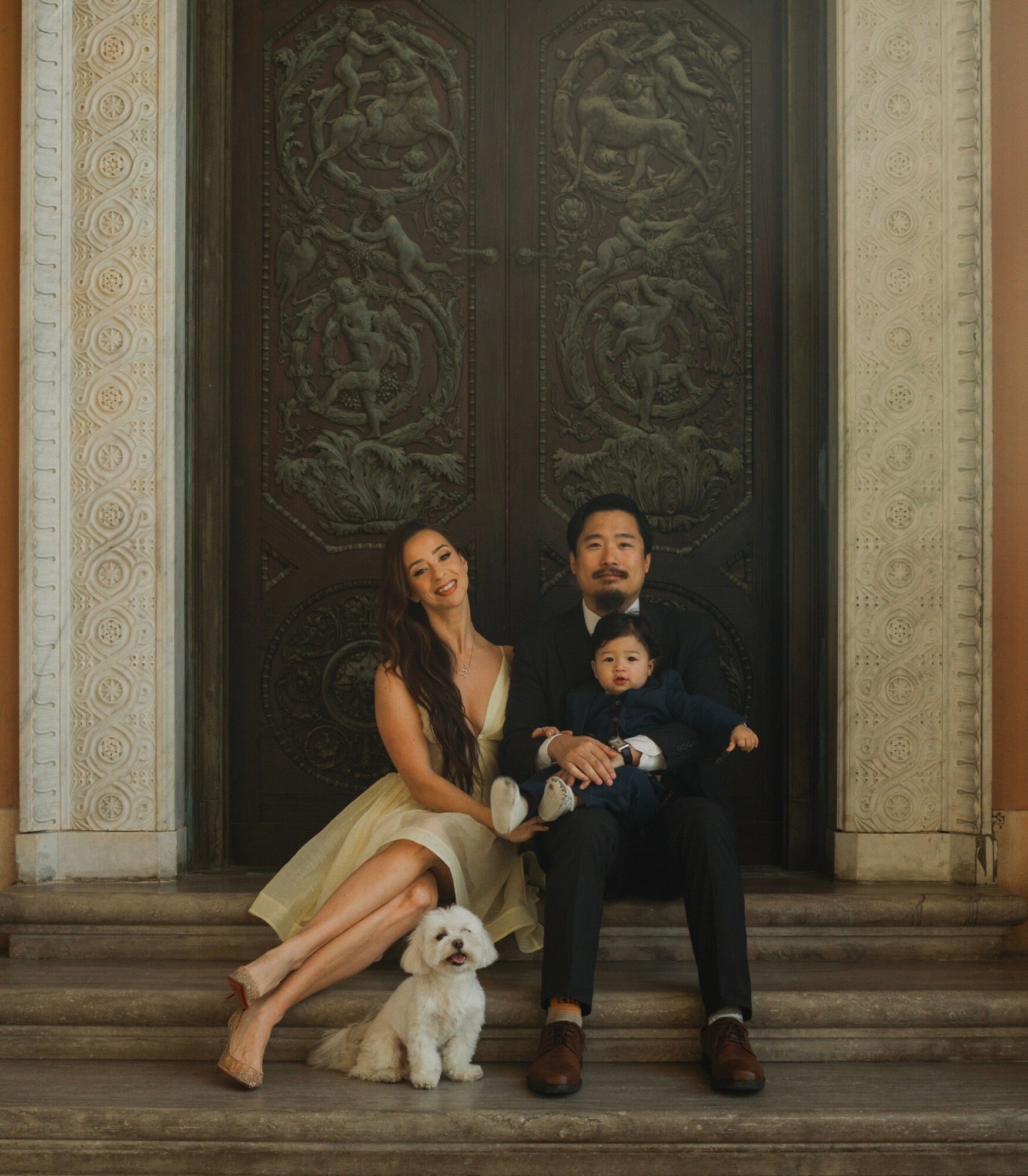

Today we’d like to introduce you to Aldrich Chan.
Hi Aldrich, we’re thrilled to have a chance to learn your story today. So, before we get into specifics, maybe you can briefly walk us through how you got to where you are today?
There were many hints throughout my life, the intellectual highlights of which might include a natural fascination with the brain in 4th and 5th grade, psychology and philosophy in 12th grade, to very specific courses in psychology during undergraduate school (e.g. sensation and perception, abnormal psychology, western philosophy and philosophy of mind). During my time in graduate school, I was simultaneously working at a community mental health center. I was obsessed with the work of Carl Jung and then I encountered two living authors that inspired me greatly: Louis Cozolino and Dan Siegel. I realized that given my location at the time (Los Angeles), there existed a possibility of working with Louis. As such, near graduating I applied for a doctoral degree at Pepperdine University, got in, and Lou became my dissertation chair, mentor and friend. During my time there, Lou recommended a lecture series by his friend, coincidentally, it was Dan Siegel. I attended, ended up working with Dan as well, and found myself becoming a part of the interpersonal neurobiology family.
Lou and Dan, were not the only people who influenced me and helped me get started. The faculty at Pepperdine were stellar, and its quality is reflected in its ranking within the top 5 programs for a Doctorate in Psychology. I had many amazing professors, and was undergoing training in psychotherapy at the Union Rescue Mission and West Los Angeles Clinic, places I continued working at for multiple years into training (part-time). In my second and third year, I had the fortune to be selected to train at top tier hospitals in the field of neuropsychology. These included Children’s Hospital Los Angeles, where I was offered a part-time job upon completion, and Cedars-Sinai Medical Center. I subsequently matched with the Ryder Trauma Center at Jackson Memorial Hospital for my internship which is how I ended up in Miami, and followed through by completing a Post-Doctoral Fellowship at University of Miami’s Miller School of Medicine.
It was during my fellowship at the U, that I secured a grant to lead a lab exploring the effects of trauma on the Default Mode Network (a network of the brain related to mental time travel, social cognition and our sense of self) under the guidance of Philip Harvey, a renowned researcher and Chief of psychology at the U. It was a passion project, as it actually built off of my dissertation. In tandem, I was seeing clinical cases working with Dr. Hernandez-Cardenache, and assisting with research on Alzheimers at the Center for Cognitive Neuroscience and Aging.
After graduating, I continued as a research associate to finish the study, and was suddenly struck by the urge to write. My sleep became erratic as I would wake up multiple times throughout the night with ideas. I was writing and reading with great enthusiasm and passion. I was also vividly dreaming and writing them out every morning (a habit I maintained since my early 20’s but intensified during this time). This was about the time COVID-19 struck, which ended up being quite beneficial to my process. Existential dread and a perceived gap in the literature, led me to complete my first book Reassembling Models of Reality: Theory and Clinical Practice. I anxiously submitted it to Dan and Lou. Lou enjoyed it, but was not confident it would be accepted, as he proposed an idea like this to Deborah Malmud (publishing director for professional books at W.W. Norton) and was rejected, Dan was far more optimistic. Luckily I “caught her on a good day,” and she was happy to move forward with this project. She did mention that I needed to develop more social media presence, which led to the creation of my current instagram account with >22K followers. I was surprised people would be so interested in the intersections of psychology, neuroscience and philosophy.
When the book was completed, so did the dense fog of existential dread lift and with the recommendation of Dan, Lou and my wife, Jessica Shraybman, I opened the Center for Neuropsychology and Consciousness, a practice dedicated to neuropsychological evaluations, psychotherapy, education and research. I have always admired Sherlock Holmes, not only for his brilliance in “deduction” (actually it was inductive reasoning), but for the way he carved out an independent path outside of rigid institutions. While my own work as a neuropsychologist and psychotherapist is not forensically oriented, like Holmes, I rely heavily on careful observation, sharp attention to detail, and the ability to piece together subtle clues that others might overlook. The responsibility rests entirely on my shoulders, yet that very weight grants me the freedom to think creatively, approach problems in common and unorthodox ways, and develop solutions that institutions (with their inherent constraints and hierarchies) might not have been open to.
I have found that private practice cultivates an environment where originality and innovation flourish. Free from institutional pressures or administrative dictates, I am able to bring both rigor and imagination into my work, offering patients uniquely tailored insights. Working privately also ensures the highest quality protection for patient records from being breached, as so often happens in larger institutions. The very qualities that made Holmes indispensable to those who sought his counsel; his creativity, his independence of thought, and his commitment to his craft, have shaped my own professional path as well.
Independence has not meant working in isolation, rather working without limits on how I can apply my expertise. Around the same time I opened my practice, I was invited to begin teaching for the Masters program online at Pepperdine University. I eventually became a course lead, meaning I help develop and design the courses I teach and play a management role with other professors, and was further brought into teach for the Doctoral program. I currently lecture on my favorite subjects like neuropsychology, cognitive/affective/contemplative neuroscience, consciousness, interpersonal neurobiology and their relevance to psychotherapy. This has been ongoing for the last 7 years.
Other activities I engage in include running a relatively new podcast where I interview and engage in discussion with luminaries in the field. I am also now at the edge of publishing my next passion project launching October 9th. This book is entitled: 7 Principles of Nature: How we strayed and how we return. In it I introduce a novel theory as to how we have become misaligned with principles of nature charting three critical phases that lead to a misguided future. Then I integrate the rigor of neuroscience, psychology, and hunter-gatherer literature, with the wisdom of Daoist philosophy to reveal a path toward integration. There are many new ideas in this interdisciplinary work and it was greatly inspired by the birth of my son and deepened concern for our community and future. It stemmed from a desire to really help the community at a larger scale.
I’m sure it wasn’t obstacle-free, but would you say the journey has been fairly smooth so far?
Every human being that comes to my clinic presents me with challenges that take two minds (or more) to work through. The hardest moments are those who I have been unable to help. In some cases, people are conditioned and/or prevented by society itself to meet basic psychological needs. In other cases (and these are not mutually exclusive) they have experienced such deep trauma or dysregulation that their inner turmoil prevents them from developing enough trust for healing to occur.
Thanks for sharing that. So, maybe next you can tell us a bit more about your work?
I am a neuropsychologist, psychotherapist, author and adjunct professor for Pepperdine University.
I am of Chinese ethnicity, yet was born in Canada, and raised in Costa Rica. I lived in many places and speak English, Spanish and Cantonese. I am on a VISA for “exceptional abilities” and for “national interest.”
I see a whole range of patients being trained in specialized hospitals for children – elderly and from a therapy perspective have worked with many severe cases. That said, I will share that the most common patients I see for comprehensive evaluations are those concerned about ADHD, Autism Spectrum, learning differences, Traumatic Brain Injury, Memory Disorders, schizophrenia, borderline, and bipolarity. I have also seen an uptick of “biohackers” interested in recognizing their baseline cognitive performance to see whether their supplements or lifestyle changes actually enhance their abilities or not. It has also been beneficial to pinpoint their strength and weaknesses, so as to help them figure out what they should be trying (depending on their profile).
For therapy I see individuals with depression, anxiety, grief, adjustment to medical illness, chronic pain, schizophrenia, bipolar, trauma, and non-clinical populations (i.e. self-actualizers, peak performance, artists, executives) who seek to enhance and optimize their functioning by leveraging neuropsychological science.
Pricing:
- $350 per session or hour block for evaluation
- rates subject to change
- no insurance.
Contact Info:
- Website: https://drchancnc.com
- Instagram: https://instagram.com/draldrichan
- Facebook: https://facebook.com/drchancnc
- LinkedIn: https://www.linkedin.com/in/aldrichpfc/
- Youtube: https://youtube.com/@drchancnc



Image Credits
Rey Zamora Photography












